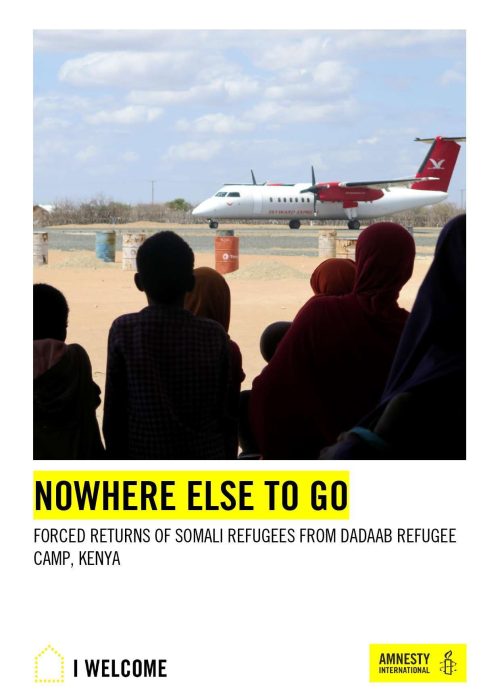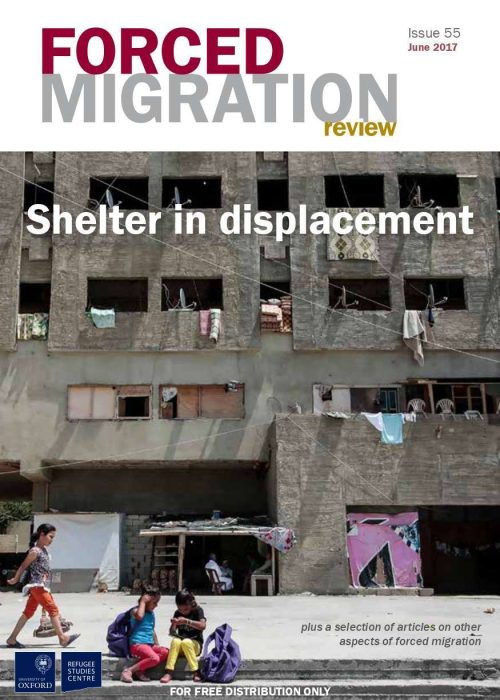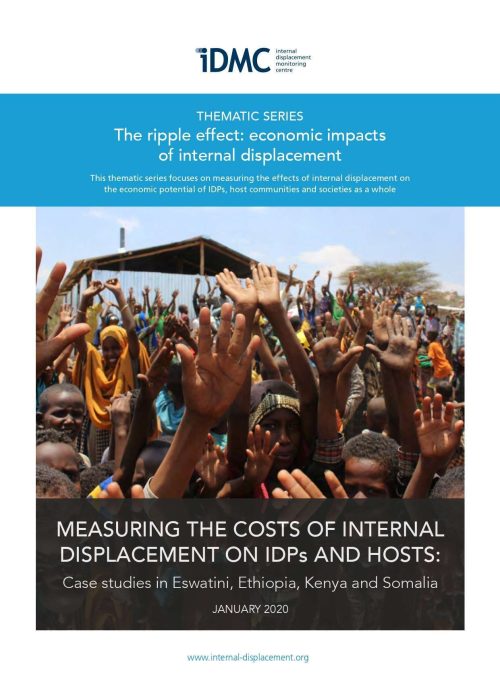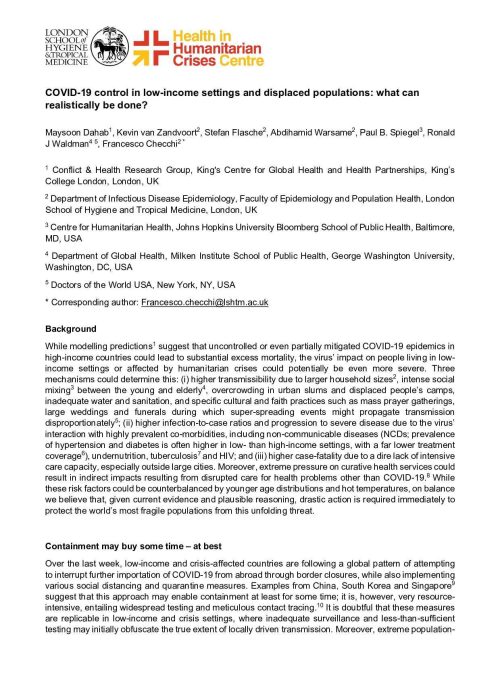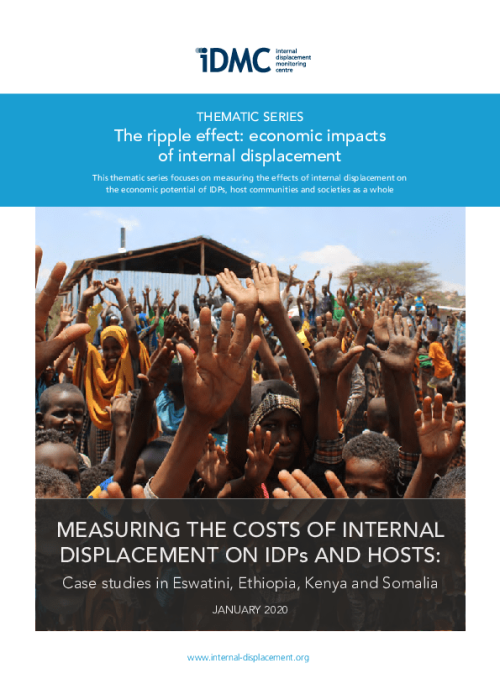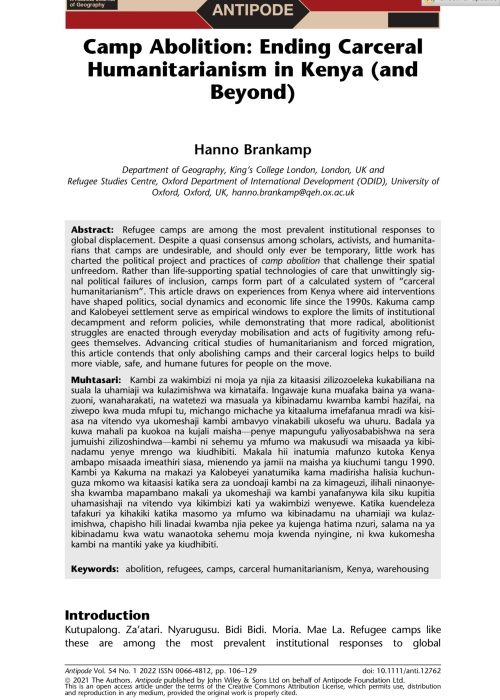This content provides a comprehensive overview of the European refugee crisis, focusing on the challenges faced by humanitarian NGOs in upholding standards, meeting the basic needs of refugees, and addressing the protection and assistance needs of vulnerable groups, particularly children. It contains six articles, which are summarised below:
Article 1: “Trying to uphold standards in the midst of a humanitarian crisis” by Danish Refugee Council
The article discusses the challenges faced by humanitarian organizations in upholding humanitarian standards during the refugee crisis in Greece. It emphasizes the need for clear information and legal support for refugees, as well as the importance of providing adequate reception capacity and protection services. The Danish Refugee Council highlights the need for an integrated approach to address the humanitarian needs of refugees and migrants.
Article 2: “Assessment: Complementing people’s basic needs in Greece” by Secours Islamique France
This article focuses on the assessment of the current situation in Greece and the need to complement the basic needs of refugees, particularly in terms of education and protection services. It highlights the vulnerability of children and adolescents and the importance of providing them with informal education and a protected environment. The article emphasizes the role of humanitarian organizations in improving the conditions of refugees and promoting their fundamental rights.
Article 3: “Europe’s migration crisis: the best and the worst” by Doctors of the World International Network
The article discusses the solidarity and hospitality shown by the Greek population towards refugees and migrants during the crisis. It highlights the rise in healthcare needs among both the Greek population and refugees, and the efforts of Doctors of the World to provide healthcare services. The article also mentions the challenges of coordinating international solidarity and the need for a coordinated response to serve the best interests of migrants.
Article 4: “Humanitarian Principles and the Europe Refugee Response: Operations before and after the EU-Turkey Deal” by Norwegian Refugee Council
This article compares the operations and challenges faced by humanitarian organizations in responding to the refugee crisis in Europe before and after the EU-Turkey Deal. It discusses the implications of the deal on the legal framework, reception capacity, and protection services for refugees. The Norwegian Refugee Council emphasizes the need for resources, solidarity, and compliance with international conventions to ensure a dignified response to the crisis.
Article 5: “Lessons from the Balkan Route: An eye on children’s special protection needs in today’s European migration crisis” by SOS Children’s Villages
This article focuses on the protection needs of children in the European migration crisis, particularly those who have been separated from their families. It highlights the importance of providing a protective environment, access to education, and psychological support for children. The article draws lessons from the Balkan Route and emphasizes the need for child-centered approaches in the humanitarian response.
Article 6: “A View from Turkey: Partnership to ensure refugee protection and assistance in south-eastern Turkey” by Diakonie Katastrophenhilfe
This article discusses the partnership approach adopted by Diakonie Katastrophenhilfe in supporting refugee protection and assistance in south-eastern Turkey. It highlights the importance of partnerships with local actors, civil society organizations, and government authorities in providing effective support to refugees. The article emphasizes the need for a comprehensive response to address the needs of refugees and promote their rights.
Article 7: “A View on the EU: Humanitarian financing: an additional challenge to respond to the EU refugee crisis” by CARE
This article focuses on the additional challenge posed by humanitarian financing in responding to the EU refugee crisis. It discusses the financial resources made available by the EU, the need for effective funding mechanisms, and the importance of adhering to humanitarian principles. The article emphasizes the role of humanitarian organizations in advocating for respect of international conventions and ensuring a needs-based response to the crisis.
Article 8: “Interview with Catherine Woollard, Secretary General of the European Council on Refugees and Exiles” by VOICE
This interview with Catherine Woollard discusses the EU’s response to the refugee crisis, the key issues with the EU-Turkey deal, and the recently adopted Communication on Forced Displacement and Development. Woollard shares her views on the need for a comprehensive and principled response, the importance of solidarity among EU member states, and the role of NGOs in advocating for the rights of refugees and migrants.

